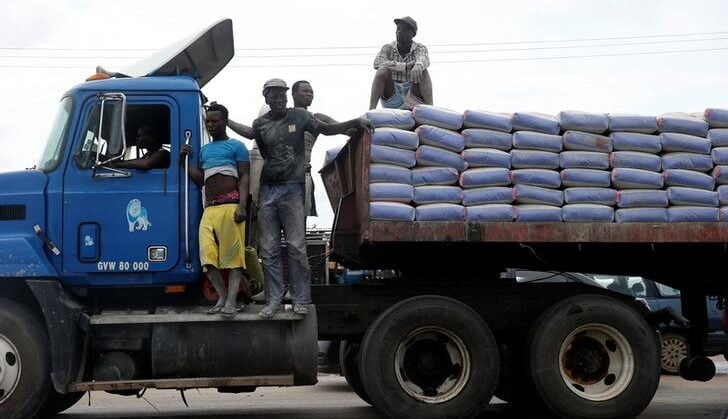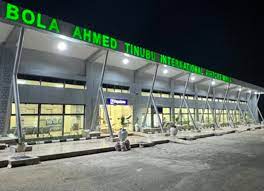The price of cement in Nigeria is raising so much concern.
Efforts to stabilize cement prices in Nigeria through agreements between the federal government and cement manufacturers has fallen on rocky ground.
The cost of a 50kg bag of cement continues to hover between ₦8,500 and ₦10,500 in retail markets.

This price range starkly contrasts with the ₦7,000 to ₦8,000 target agreed upon, underscoring persistent challenges in making construction materials affordable for Nigerians.
Before things got to this level, Nigerians had poured out their frustration on landlords. Our brothers and sisters in Lagos held house developers by the neck.
They blamed them for the increase of house rents, especially those moving from their old home to a new one.
Now, the present situation in the country leaves a perfect excuse that cannot be argued.
The Cement Market
In Nigeria, one would ordinarily expect that with the presence of major cement brands such as Dangote, Lafarge, Ibeto, BUA, and UNICEM, which dominate the market, buying cement should not be a burden.
But sadly, the reverse is the case.
The recent spike in cement prices places Nigeria in a higher bracket than other African countries despite the presence of these top cement brands.
These brands, known for their quality and wide distribution network, sell cement bags at almost uniform rates across the country.
This poses a certain kind of challenge for intending landlords and developers and in turn becomes a problem for tenants.
Budget-Friendly Options
You may be wondering why many building projects have been put on hold, well, the increase in cement prices is one of the key reasons.
Nigerians are seeking alternative ways to everything, but when it comes to building houses, seeking alternatives may sometimes mean putting many lives at risk.
If you are seeking budget-friendly options, here’s what we know.
Notably, Ibeto and BUA Cement are positioned as the more budget-friendly options in the Nigerian cement market.
In contrast, Dangote Cement occupies a mid-range price point, whereas UNICEM and Lafarge Cement are priced at the higher end of the spectrum.
Also Read: See How BUA Cement Revenue Grew To ₦460bn
While wholesale purchases, equivalent to a trailer load, offer some cost-saving advantages, the retail prices remain significantly high for the average Nigerian consumer or small-scale builder.
Here is the current Price of a bag of cement in Nigeria:
Abia: ₦8,500 – ₦10,000
Adamawa: ₦8,500 – ₦10,000
Akwa Ibom: ₦8,500 – ₦10,000
Anambra: ₦8,500 – ₦10,000
Bauchi: ₦8,500 – ₦10,000
Bayelsa: ₦8,500 – ₦10,000
Benue: ₦8,500 – ₦10,000
Borno: ₦8,500 – ₦10,000
Cross River: ₦8,500 – ₦10,000
Delta: ₦8,500 – ₦10,000
Ebonyi: ₦8,500 – ₦10,000
Edo: ₦8,500 – ₦10,000
Ekiti: ₦8,500 – ₦10,000
Enugu: ₦8,500 – ₦10,000
Gombe: ₦8,500 – ₦10,000
Imo: ₦8,500 – ₦10,000
Jigawa: ₦8,500 – ₦10,000
Kaduna: ₦8,500 – ₦10,000
Kano: ₦8,500 – ₦10,000
Katsina: ₦8,500 – ₦10,000
Kebbi: ₦8,500 – ₦10,000
Kogi: ₦8,500 – ₦10,000
Kwara: ₦8,500 – ₦10,000
Lagos: ₦8,500 – ₦10,000
Nasarawa: ₦8,500 – ₦10,000
Niger: ₦8,500 – ₦10,000
Ogun: ₦8,500 – ₦10,000
Ondo: ₦8,500 – ₦10,000
Osun: ₦8,500 – ₦10,000
Oyo: ₦8,500 – ₦10,000
Plateau: ₦8,500 – ₦10,000
Rivers: ₦8,500 – ₦10,000
Sokoto: ₦8,500 – ₦10,000
Taraba: ₦8,500 – ₦10,000
Yobe: ₦8,500 – ₦10,000
Zamfara: ₦8,500 – ₦10,000
Abuja: ₦8,500 – ₦15,000

